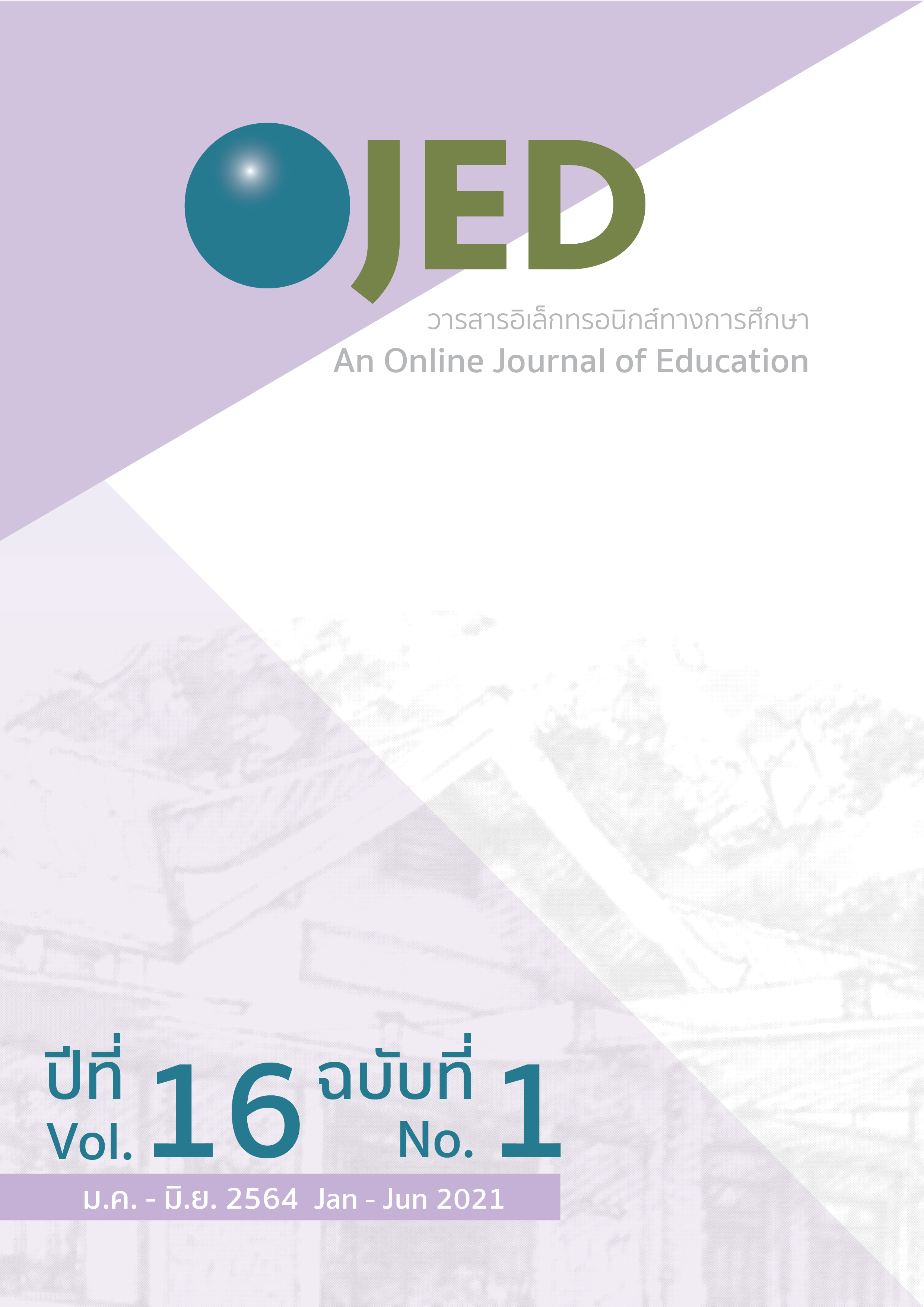The Fostering of Piano Beginners’ Improvisation Skills through Rhythmic Movement Exercises
DOI:
https://doi.org/10.14456/ojed.2021.16Keywords:
improvisation skills, rhythmic movement exercises, piano beginnersAbstract
The purpose of this research was to study the quality of piano beginners’ melodic and rhythmic improvisation skills through rhythmic movement exercises. The participants consisted of 3 piano beginners, who studied piano with the researcher. The research used the Single-Group Pretest-Posttest Design. The tools included rhythmic movement exercises, which were used as experimental tools, and the data collection tool was an improvisational skills’ evaluation form. The researcher analyzed the outcome using quantitative analysis and qualitative analysis. For instance, the quantitative analysis was performed by calculating the average scores of each student’s improvisation skill and comparing each student’s pre-test to post-test development. Moreover, the qualitative analysis was in the form of music notation with respect to the characteristics of each student’s improvisation skills. The results revealed that each participants’ individual improvisation skills improved differently. Specifically, it was found that students who had studied piano for 2 years were more able to improve their improvisation skills than students who had studied piano for no longer than 3 months.
References
ภาษาไทย
วิตต์ธาดา เภาคำ และ ณัฐวุฒิ บริบูรณ์วิรีย์. (2556). การนำเสนอแนวทางการจัดการเรียนการสอนดนตรีโดยใช้ดนตรีคลาสสิคและดนตรีสมัยนิยมเพื่อพัฒนาทักษะเปียโนของนักเรียนเปียโนระดับชั้นต้น. จุฬาลงกรณ์มหาวิทยาลัย. http://doi.org/10.14457/CU.the.2013.638
ภาษาอังกฤษ
Bergethon, B., & Boardman, E. (1979). Musical growth in the elementary school (4th ed.). Holt, Rinehart and Winston.
Chyu, Y. E. (2004). Teaching improvisation to piano students of elementary to intermediate levels (Order No. 3160781) [Doctoral dissertation] ProQuest Dissertations & Theses Database.
Fleming, G. A. (1976). Creative rhythmic movement: Boys and girls dancing. Prentice Hall.
Flohr, J. W., & Persellin, D. C. (2011). Applying brain research to children’s musical experiences. In S. L. Burton & C. C. Taggart (Eds.), Learning from young children: Research in early childhood music (pp. 3-22). Rowman & Littlefield Education.
French, L. A. (2005). Improvisation: An integral step in piano pedagogy. Digital Commons, Trinity University. https://digitalcommons.trinity.edu/cgi/viewcontent.cgi?article=1000&context=music_honors
Koutsoupidou, T., & Hargreaves, D. J. (2009). An experimental study of the effects of improvisation on the development of children’s creative thinking in music. Psychology of Music, 37(3), 251-278. https://doi.org/10.1177/0305735608097246
Salling, L., & Vincentz, E. (2018). Listen to the lion: Yoga for kids. Lottesalling.dk. https://lottesalling.dk/onewebmedia/Listen%20to%20the%20Lion%20-%20Yoga%20for%20kids.pdf
Thompson, M. B. (2018). Fundamentals of piano pedagogy fuelling authentic student musicians from the beginning. Springer Link. https://link.springer.com/content/pdf/10.1007%2F978-3-319-65533-8.pdf
Trinity College London. (2021). Piano syllabus: Piano and piano accompanying qualification specifications for graded exams 2021-2023. https://www.trinityexamsthailand.com/downloads/syllabuses/Piano%20Syllabus%202021-2023.pdf
Uszler, M., Gordon, S., & McBride-Smith, S. (1999). The well-tempered keyboard teacher (2nd ed.). Schirmer Cengage Learning. https://idoc.pub/documents/uszler-the-well-tempered-keyboard-teacher-dvlrzvorkvnz
Wetton, C. (2014). Music. In P. Smith & L. Dawes (Eds.), Subject teaching in primary education (pp. 190-208). SAGE. http://dx.doi.org/10.4135/9781473921672.n10
Yamaha Music Foundation. (2020). Yamaha grade examination system: Piano performance grade syllabus. https://www.yamaha-mf.or.jp/english/grade/pdf/PG10-6_Syllabus.pdf
Downloads
Published
How to Cite
Issue
Section
License
Copyright (c) 2021 An Online Journal of Education

This work is licensed under a Creative Commons Attribution-NonCommercial-NoDerivatives 4.0 International License.




